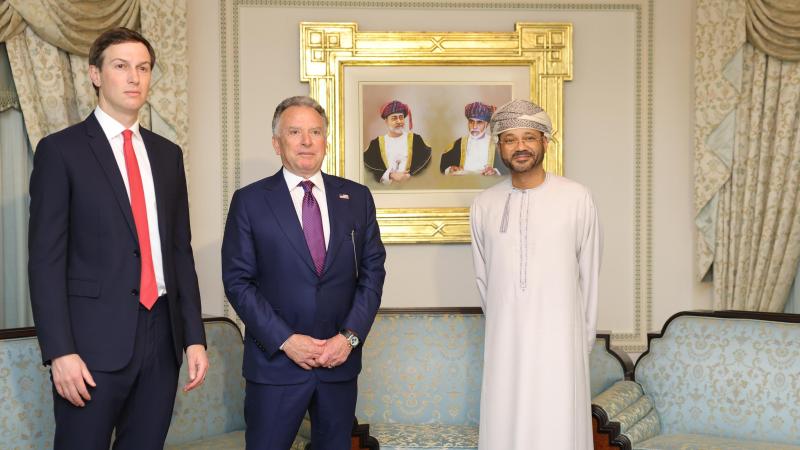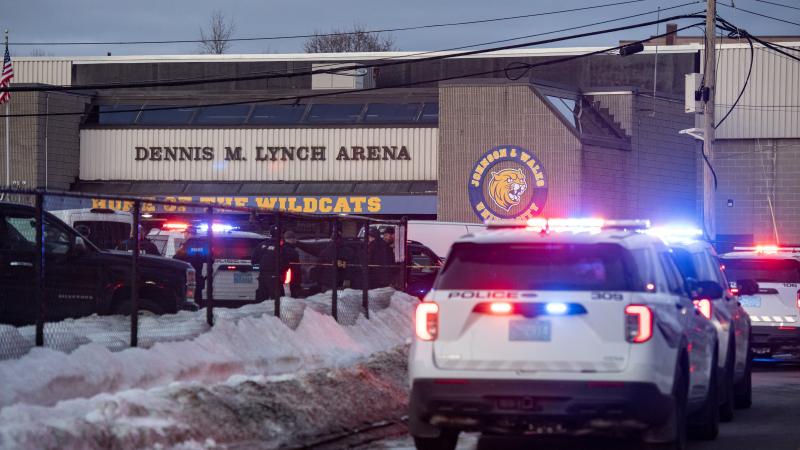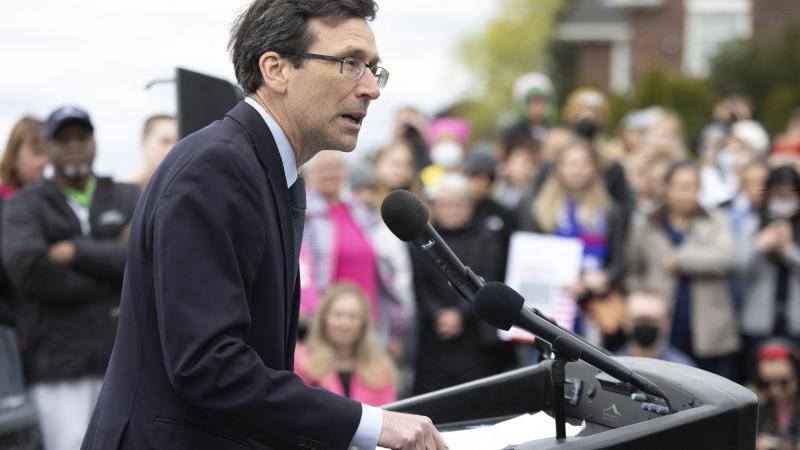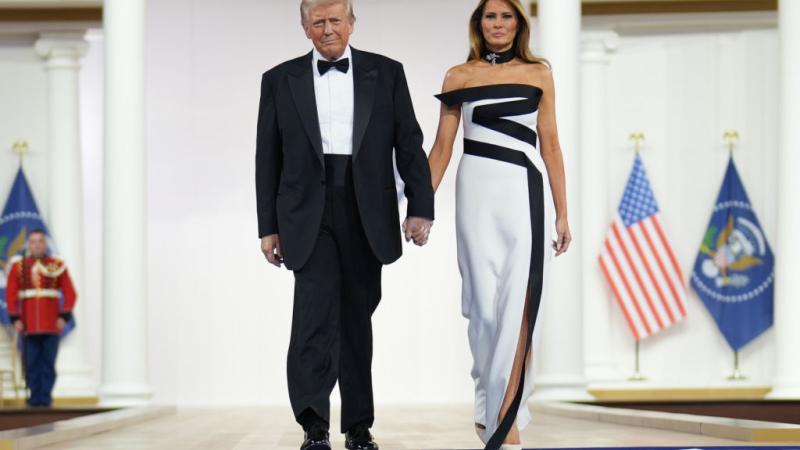'Semi-irrational attachment': Biden still seeking Iran nuke deal with no fallback plan: experts
"The president is trying to recreate a reality that doesn't exist anymore," one analyst said.
The Biden administration is leaving the door open to a nuclear deal with Iran that would provide the regime with a windfall of cash even as it kills anti-government protesters at home and helps fuel Russia's war machine in Ukraine with lethal drones, according to experts who spoke to Just the News.
"There's nothing in the administration's foreign policy behavior to say there's been a change," said Benham Ben Taleblu, a senior fellow at the Foundation for Defense of Democracies. "Their response to the protests and the drones is good and welcome, but everything continues to be defined by the nuclear deal."
Since the 2020 presidential campaign, President Biden and his senior advisers have made reviving the 2015 nuclear deal, which placed temporary curbs on Iran's nuclear program in exchange for lifting large-scale sanctions on the regime, a top priority. Former President Trump withdrew the U.S. from the accord — formerly called the Joint Comprehensive Plan of Action, or JCPOA — in 2018.
"Biden administration officials staked their entire Iran strategy — both before the president's election as well as afterwards — on revival of the JCPOA," said Gabriel Noronha, who served as a special adviser on Iran at the State Department. "Most of the officials on both sides of the Atlantic negotiated the original JCPOA and have a semi-irrational attachment to it."
However, U.S. officials have recently said nuclear negotiations aren't on the Biden administration's agenda right now as Iran violently cracks down on anti-government protesters and supplies drones — also known as unmanned aerial vehicles, or UAVs — to Russia to use against Ukraine.
The State Department echoed that message on Friday.
"The door for diplomacy will always remain open, but as of now, we don't see a deal coming together anytime soon and it is not our focus," a spokesperson told Just the News. "Iran is killing its young people and selling UAVs to Russia to kill Ukrainians. Right now, we are focused on taking practical steps to support the people of Iran, especially women and girls — as they protest peacefully despite ongoing, violent repression — and countering Iran's proliferation of dangerous UAVs to Russia for use in its brutal war against Ukraine."
The administration is "hedging" by still leaving open the possibility of nuclear talks, according to experts, who described this approach as misguided.
"There's no such thing as standing with the Iranian people as long as the door is held open by this administration for a deal that would ultimately enrich the regime's apparatus of domestic repression and foreign aggression," said Taleblu.
According to a Foundation for Defense of Democracies analysis, the new deal that was being negotiated would give Iran access to $274 billion in its first year and at least $1 trillion by 2030 through sanctions relief. Experts have derided the agreement under discussion for containing more U.S. concessions than the original 2015 version and allegedly serving Iran's interests.
"We'd be giving Iran more sanctions relief, including both nuclear and non-nuclear sanctions, in exchange for expiring restrictions on its nuclear program," said Jason Brodsky, policy director of United Against Nuclear Iran. "
Key limits on Iran's nuclear program under the deal, such as caps on uranium enrichment, have specific expiration dates within the next decade. Analysts have chided the administration for not insisting on an extension of these so-called sunset clauses.
Analysts have also said a key reason why the administration isn't overtly pushing for the nuclear deal now — beyond alleged Iranian intransigence in negotiations — has nothing to do with a change of heart about policy but rather concern about bad optics as the Iranian people demonstrate against their government.
"Reviving the nuclear deal now would look like external interference in Iranian affairs," said Brodsky. "Iranians fear current U.S. policy is aimed at propping up this regime."
Patrick Clawson, senior fellow and director of research at the Washington Institute for Near East Policy, added that current protests "make the optics terrible for reaching an agreement that would provide Iran access to billions in accounts now frozen."
There would be two ways to tell, according to experts, that the administration has shut the door on the nuclear deal: formally suspending negotiations, which have been dormant for months, and beginning the so-called "snapback" process, which enables the U.S. or any of the small handful of official participants in the nuclear deal to reimpose on Iran all the United Nations sanctions that were lifted. Doing either, however, would mean the Biden administration acknowledging a key foundation of its foreign policy didn't work.
"Biden officials feel that to announce an end to negotiations would be admitting failure, and that snapback also signals the end to the JCPOA," said Noronha.
Formally ending negotiations and beginning the snapback process would also anger China and Russia, both of which have friendly relations with Iran, without having a positive effect on Iran's conduct, according to Clawson.
"Plus, ending the talks would seem to confirm Trump's judgment that the JCPOA was a bad deal, and no one has an interest in giving Trump bragging rights," he said. "On top of which, the Biden team has much on its plate. Why call attention to a policy which is not working? More attractive is to keep the negotiations on life support. After all, neither Biden nor any other party — including the Israelis — have a Plan B of what to do next."
Other experts were quick to criticize Biden for not having a clear backup plan in case efforts to revive the nuclear deal failed.
"Neither Europe nor the Biden administration have developed any alternate strategy as Iran has held out for even further Western concessions and rejected offers of peace," said Noronha. "The Biden administration has struggled both intellectually and politically to come up with an alternative. The prime cause is political inertia and lack of leadership that can admit fault and work toward a new and better strategy."
However, both Democrats and Republicans in Congress have "forced" the Biden administration to change tactics, Nornonha noted, adding that Republicans taking control of the House in January may bring about further change quicker. Both parties have called for the administration to be more supportive of the Iranian people and tougher on the regime.
The annual, must-pass bill that authorizes the Department of Defense's spending and policy priorities for the next fiscal year includes provisions requiring the administration to submit a diplomatic strategy toward Iran to Congress. The bill passed this week and is heading to Biden's desk.
Such pressure from lawmakers is necessary, according to Taleblu, who said the administration's current strategy with the nuclear deal on ice seems to be just getting to the next election cycle without a major nuclear crisis with Iran.
Still, the State Department spokesperson told Just the News, "robust U.S. sanctions remain in place" against Iran, and the administration "will continue to vigorously enforce both our unilateral measures and the provisions of United Nations Security Council Resolution 2231," which endorsed the original 2015 nuclear deal and lifted international sanctions on the regime.
"Dusting off Treasury Department sanctions should be the floor, not the ceiling," said Taleblu.
Beyond sanctions, some experts say the nuclear deal's time has come and gone, arguing the global situation has changed and made the agreement a relic.
"The president is trying to recreate a reality that doesn't exist anymore. He needs to wake up to the reality that the deal can't be revived," said Brodsky. "[Biden Special Envoy for Iran Robert] Malley said the deal is on the table but not currently on the agenda. My response is it should be on the shelf. It has no future in the U.S. under the 2015 framework they're trying to resuscitate."















